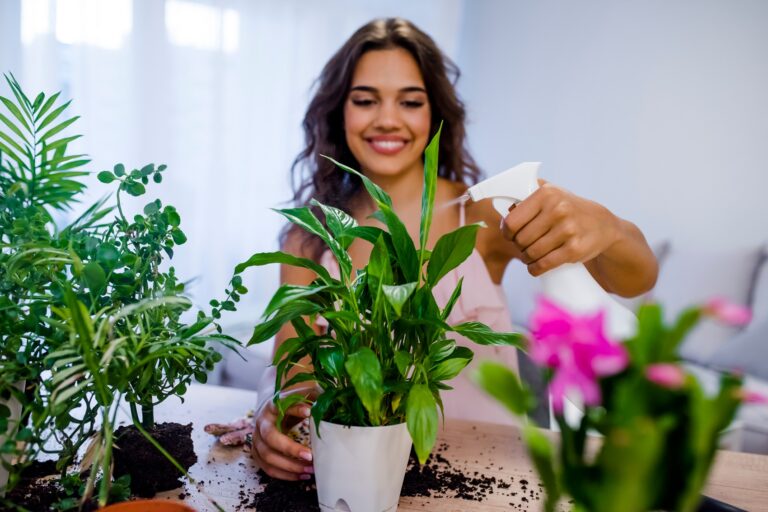We want to help you learn how to fertilize houseplants easily, and with things you probably have in your house as we speak.
Cereal crumb fertilizer
Did you know that cereal crumbs are great for houseplants? The grains they’re made up of are also great for supplying nutrients to the soil! Each time you have some crumbs left in your cereal box, add them to your house plant and gently cover them with soil.
Plants love starch
Your houseplants need nourishment, particularly in the dead of winter when the sunlight is limited—but there’s no need to buy expensive plant food. Just remember to save the water in which you boil potatoes or pasta, let it cool, and use it to water your plants. They love the starchy water!
Read also: The 7 Best Ways to Get Rid of Mosquitoes
Feed plants from your fish tank
If you’re cleaning your fish bowl or tank, use the old water to fertilize your plants! It contains nitrogen, potassium, and phosphorus—all three function as natural fertilizers for plants. You’ll be amazed at the results.
Club soda for houseplants
If it’s been a long time since you’ve replaced your plant’s potting soil, help it get back some of the nutrients it lost with club soda. The minerals in the soda are some of the same that soil is enriched with. Just make sure to bring the soda up to room temperature before using. You can even use flat club soda!
Prevent mold and fungus
Most powdered flower “food” works by lowering the pH level of the water, so that it’s still good for fresh flowers, but bad for any bacteria that may want to grow. If you notice fungus or mold cropping up on your plant or its soil, lower its pH with aspirin. Just crush one tablet into approximately one quart of water, and stir until it dissolves. Then use this water to water your plant.
Put produce peels to work
You don’t need a compost pile to use fruit and vegetable peelings to fertilize your plants! Instead, save peels from produce in your fridge or freezer. When you have at least a cup of them, soak them overnight in cold water. Remove the peels and the water left behind is now a fertilizer for your plants that’s rich in nutrients and minerals and completely natural.
For more plant know-how, check out the Who Knew? podcast. In episode 19, we help you make sure you’re taking the best care possible of your plants with the answers to the most-asked questions about houseplants, including how to keep bugs (and cats!) away from houseplants, how much to water your houseplants, what to do if you have low light, the best plants for air purification, and more. Listen by clicking this player:
For more tips like these, follow our Gardening and Yard Tips board on Pinterest and don’t forget to to follow us on Facebook and Instagram!




